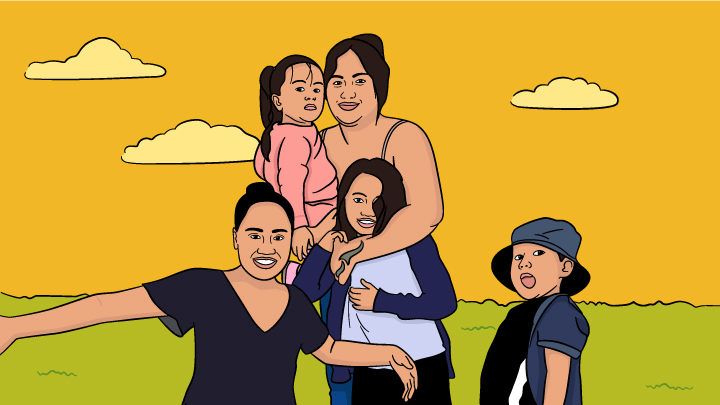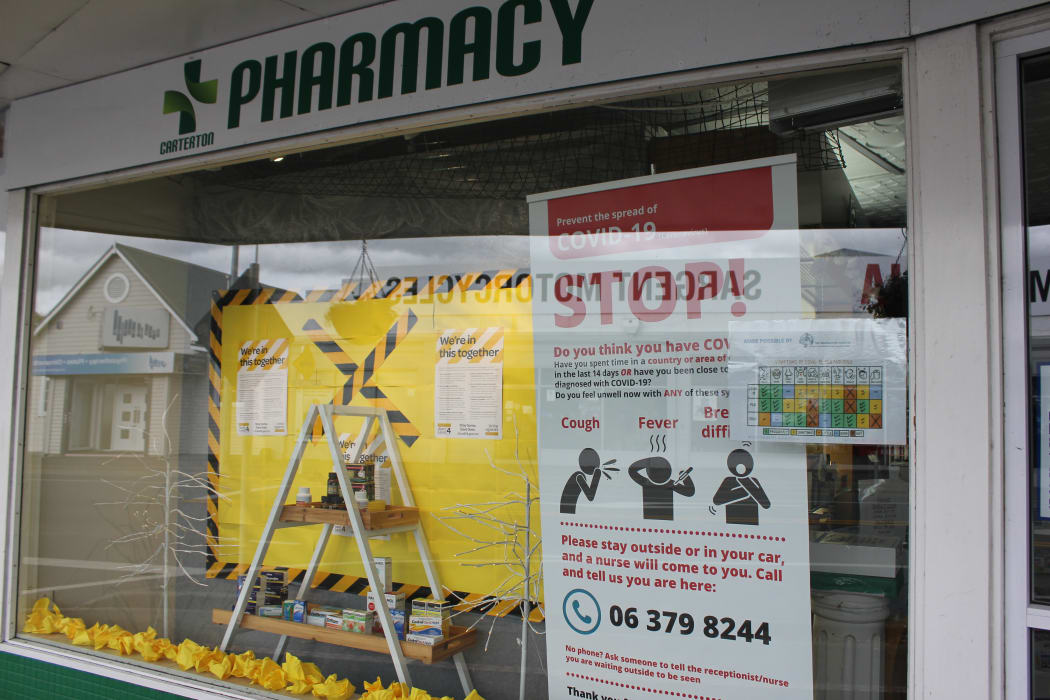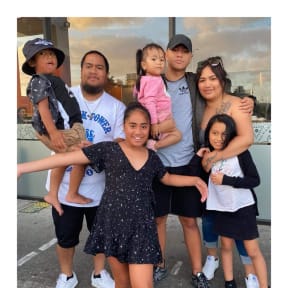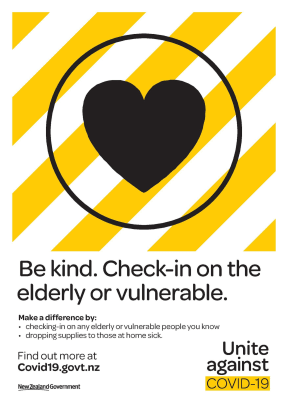How do you lockdown if you do not have a home and how do health workers protect their families when they arrive home from the frontlines? In this episode we hear about housing, the homeless and nursing under extraordinary circumstances.

Photo: Supplied We Cared
Subscribe to Kei Roto i te Miru: Inside the Bubble on Apple Podcasts, Spotify, Google Podcasts, Stitcher, iHeart Radio or wherever you listen to your podcasts.
Nurse Liz continued to work through lockdown and while caring for patients also needed to navigate her home life and caring for family. Liz’s Dad is in a retirement village with his partner and he was "very mindful of not going out of their apartment," said Liz, "They were quite strict."

Carterton Pharmacy with lockdown signs in the window Photo: Caren Wilton
To get around the separation Liz would give them a call while she was on her daily walk and they would come out to on to their balcony and wave while they had a chat with her on the phone.

Titihuia Keelan (right) and whanau Photo: Supplied
The challenge of physical distancing while maintaining social connection was overcome in Liz's case by technology and living close to family, but this didn’t happen for everyone.
Titihuia Keelan is a wife, Mum to five kids, and runs a busy beauty salon from home. During lockdown her bubble expanded to take in 8 kids from her wider whanau who needed support. Titihuia is Ngati Porou and grew up spending time with her Nan.
"We’re used to the whole making big kai and everything," said Titihuia, "We were used to helping out the elders with their washing and everything, that’s just a normal thing."
But Titihuia’s usual support network could not help her out during lockdown. She was alone with her bubble of 12 children.
In Northland, community workers banded together to ensure the most vulnerable were cared for during lockdown.

Covid-19 'Be Kind' poster Photo: Supplied
Elizabeth Cassidy-Nelson described requests for food parcels tripling, people losing 20 percent of their income, losing jobs, and struggling to survive. She dropped off a food parcel to a whānau with 22 living in a two bedroom house.
"I’m just really concerned for the conditions in which they’re living, they have no other options," said Elizabeth, "But when I dropped this food parcel off, I saw these beautiful smiley little faces, looking out the window, excited about the food that was about to arrive."
Elizabeth is Chief Executive of 155, a community organisation supporting homeless people with support services, free cooked meals, legal help and a food bank. During the lockdown, she was impressed by how people and social service agencies worked together and how technology made it much simpler.
"It’s been a highlight I guess of this time that everybody’s getting on board and we’re connecting much more regularly and through that I’m seeing a real true collaboration and collective action across organisations, that we haven’t quite had before," said Elizabeth.

